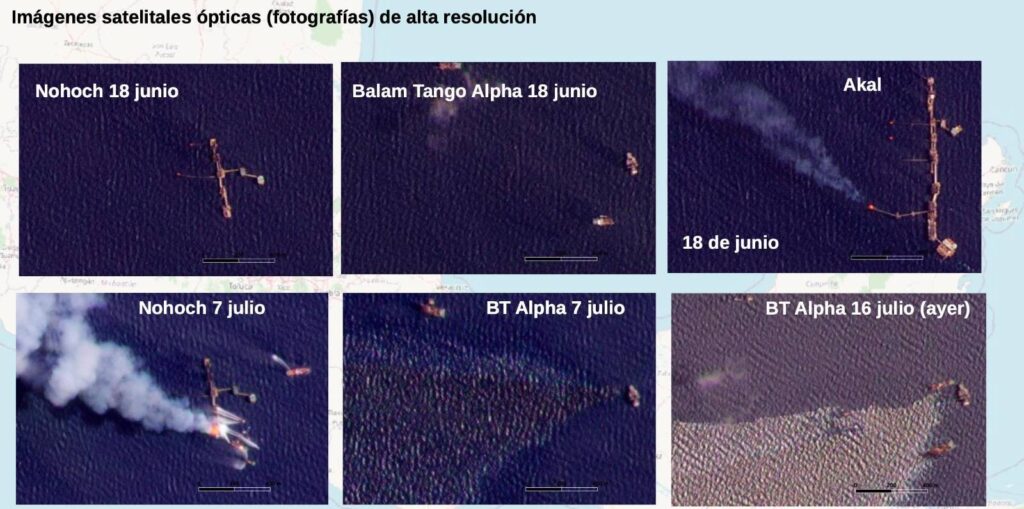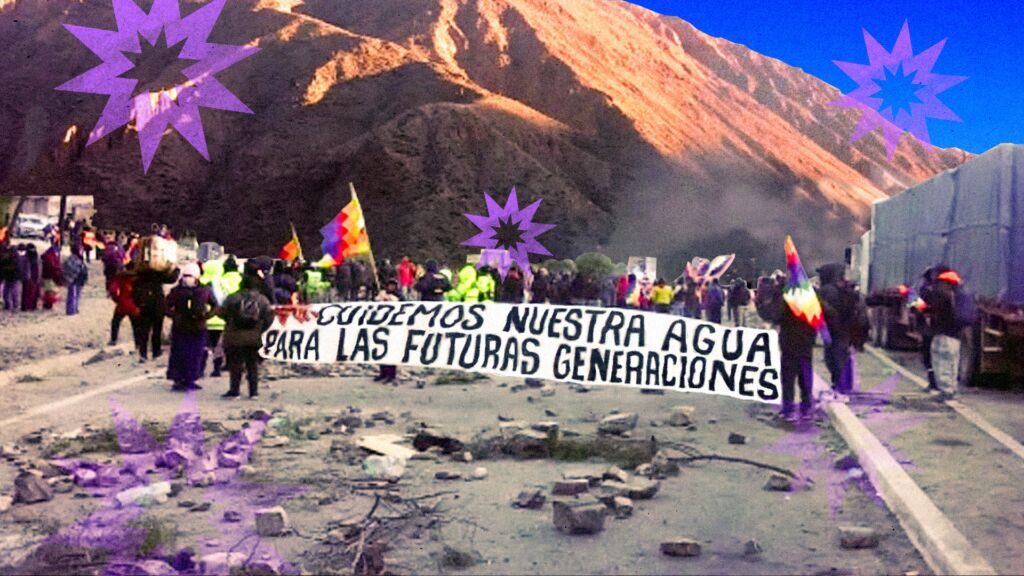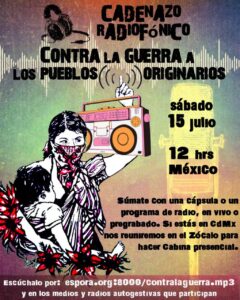
Author
¡49 AÑOS EN BÚSQUEDA DE LA VERDAD Y LA JUSTICIA!
A LA COMISIÓN INTERAMERICANA DE DERECHOS HUMANOS
A LOS MEDIOS DE COMUNICACIÓN
A LOS PUEBLOS DEL MUNDO
AL PUEBLO DE MÉXICO
Comunidades indígenas a 19 de julio de 2023
Han transcurrido 49 años de impunidad e injusticia, casi medio siglo en el que comunidades indígenas incansablemente siguen buscando memoria, verdad y justicia para los desaparecidos del pueblo p’urhépecha: José de Jesús Guzmán Jiménez; y sus hijos Amafer, Solón Adenauer, Armando y Venustiano Guzmán Cruz, los cinco originarios de la comunidad indígena de Tarejero en Zacapu, Michoacán, México.
Ellos fueron detenidos, torturados y desaparecidos en el mes de julio de 1974 por el Ejército Mexicano y la entonces policía política, la Dirección Federal de Seguridad (DFS), siendo trasladados a la XXI Zona Militar en Morelia y posteriormente al Campo Militar No.1 en CDMX, por ser luchadores sociales, opositores políticos y soñadores de un mundo mejor.
Por casi cinco décadas, sus familiares, organizaciones no gubernamentales de los derechos humanos y comunidades originarias han exigido justicia para la familia Guzmán Cruz, pero el Gobierno Federal ha respondido con negación, indiferencia y represión.
Hoy, el gobierno de la llamada 4T, continúa sin resolver las desapariciones forzadas por motivos políticos ocurridas durante la segunda mitad del Siglo XX, las desapariciones de los defensores de los bosques y del territorio de las comunidades indígenas y mucho menos, las miles de desapariciones acontecidas en los últimos sexenios. La impunidad e injusticia imperan en nuestro país y día a día la grave crisis de los derechos humanos aumenta. Si no hay justicia para los desaparecidos del pasado, mucho menos lo habrá para los del presente.
(Español) Ecuador | No es consulta, es violencia minera
NO ES CONSULTA, ES VIOLENCIA MINERA
Mientras la Corte Constitucional del Ecuador decida revisar la demanda de inconstitucionalidad interpuesta por la CONAIE, el gobierno de Lasso ha desplegado centenares de policías y militares que intimiden y sometan a los pueblos del subtrópico ecuatoriano cantones de Las Naves y Sigchos y con ello dar luz verde para la explotación de los proyectos Curipamba – El Domo y La Plata.
Proyectos ilegales e ilegítimos que han desencadenado un grave conflicto social y una amenaza para la provisión de agua de las comunidades y ciudades, la soberanía alimentaria y las economías locales. Desde inicios de junio, con la ejecución del #Decreto754 el Estado ecuatoriano ha cometido actos violentos que atentan contra los derechos humanos de las poblaciones campesinas, organizadas para defender el territorio frente al embate minero.
Para imponerlo por medio de la fuerza y sin la existencia de una “Ley” que viabilice una “Consulta Ambiental” con todas las garantías y parámetros ordenados por la ley, la Corte Constitucional y los tratados internacionales. El gobierno servil a los intereses de las transnacionales mineras, pretende convertir nuestro derecho a ser consultados de manera previa, libre e informada; en un trámite “express” y de esa manera explotar territorios en RESISTENCIA y oposición a la declaratoria de zonas de sacrificio minero.
Una vez más, ante los ojos del Ecuador y el mundo, se evidencia que la violencia es una condición necesaria de la minería y que no es sino a sangre y fuego la manera en la que se abre paso. Por tal motivo continuamos denunciando y haciendo público nuestro rechazo a las medidas de carácter
dictatorial ejercidas por Lasso, el despliegue de los cuerpos de policías y militares y el uso de la fuerza para sostener una proceso ilegal e inconstitucional, la persecución y criminalización de comuneras y comuneros que defienden los derechos, el agua, el territorio, la soberanía alimentaria y la vida misma.
Por ello responsabilizamos al gobierno de Lasso por la integridad, la seguridad y las vidas de las y los comuneros del cantón Sigchos donde se prevé esta semana imponer por la fuerza el decreto 754. Exhortamos a la Corte Constitucional del Ecuador SUSPENDER DE MANERA INMEDIATA los efectos del decreto 754, porque atenta contra la vida y la paz de miles de poblaciones indígenas y campesinas amenazadas por la ilegalidad y violencia minera.
Frente Nacional Antiminero
18 de julio de 2023






